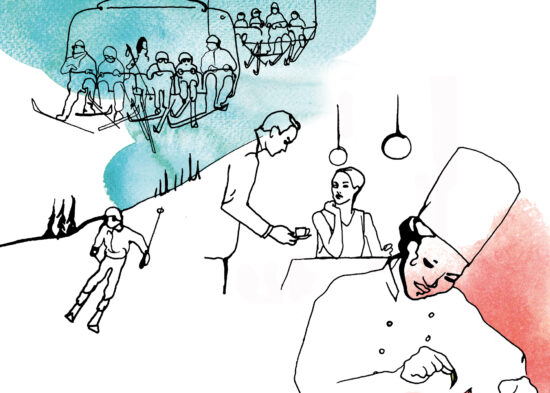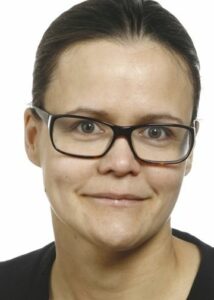Results from the project
BFUF Rapport #11 Karriär inom besöksnäringen – En studie av rörlighet och karriärvägar
Career paths and mobility in the Swedish hospitality sector
Community Formation and Sense of Place – Seasonal Tourism Workers in Rural Sweden
Wage determinants in the Swedish tourism sector
Susanna Heldt Cassel, Senior Lecturer at Dalarna University, Tema Turism
What is the research project about?
“If the Swedish hospitality sector is to be able to grow in line with the ambitious goals it has set itself up to the year 2020, recruitment and competence maintenance will be absolutely crucial. Recruitment must be made easier and more effective if the sector is to be able to employ as many as fifty thousand individuals with the appropriate skills. We will analyse the hospitality sector as a labour market by mapping the career paths that exist and the mobility patterns of employees. We hope to be able to identify factors that are important for retaining and attracting staff and identify patterns that influence staff turnover. No overview of this exists at present.”
How will you proceed?
“We will study four sub-sectors; namely, restaurants, hotels and activity and transport companies in five counties: Dalarna, Gävleborg, Värmland, Västmanland and Örebro. We have access to a fantastic database containing anonymised data at individual level which has been compiled by Statistics Sweden. The database makes it possible to find out which workplace an individual has been employed at, their training and previous work, when they terminated their employment and where they have gone after that. We have data from 1990 to 2011 produced in three-year intervals, and we can make specific analyses of short periods of time depending on quality and the specific variables available. With the help of occupation codes contained in the database we will also test whether we can see the movement of different categories of employees between different jobs. One would then be able to see the career progression of staff in the four sub-sectors.
‘This autumn we will supplement the data analysis with interviews. We’ll put questions to the heads of staff and managers who work in recruitment in selected companies at three destinations. We’ll select a mountain resort – probably Sälen or Idre, a destination offering cultural tourism, and a hotel belonging to a hotel chain in an average sized town. The interviews will include topics such as how one views one’s career path and the perception of those that exist. We’ll compare the answers with the data material; that is, we’ll look at the question from both a quantitative (database) and qualitative (interview) perspective to see if we can obtain a consistent picture.”
How can the hospitality sector benefit from this research?
“The research can be of great benefit to those taking a strategic approach to development. Knowing where staff have come from, which paths they have taken to get into the hospitality sector, and the different ways of pursuing a career will enable them to focus their recruitment drive in a smarter way. If we find that many individuals in the hospitality sector have a past in commerce, say, then recruitment could of course focus specifically on that area. One can do the same as regards training courses usually attended by employees in the sector. It might also be that people who have worked abroad or come from a sector that doesn’t immediately spring to mind – such as the construction industry – will provide a broad recruitment base. ‘This research and knowledge is useful to have at national level if we are to be able to explain better what the labour market in the hospitality sector looks like, and it will also be a basis for discussing the needs that exist and the importance of investing in it.”
What is the main challenge?
“We need to produce the right selection of data and find the right method of processing it. We’ll be putting a lot of time and energy into this at the beginning. The material is like a sea of information; we need to decipher the codes to find out how to sort out and structure it. Once that is done I think all will go smoothly.”
The research team
Susanna Heldt Cassel defended her doctoral thesis in Cultural Geography in Uppsala in 2004 and has been Senior Lecturer at Dalarna University since 2005. She divides her work equally between research and teaching on the Tourism Destination Development master’s programme. Her field of research is regional development issues connected to tourism with particular focus on social and cultural issues regarding tourism development. Mats Lundmark is Professor of Cultural Geography at Örebro University, and Daniel Brandt is Senior Lecturer in Cultural Geography at Dalarna University. Daniel is an expert in database management.
Project facts
Project
Mobility and career paths in the Swedish hospitality sector
Research organization
Dalarna University
Project Manager
Mats Lundmark, Professor, Örebro University
Members
Susanna Heldt Cassel, Senior Lecturer, Daniel Brandt, Senior Lecturer, Dalarna University Time period: Jan 2014 – Jan 2016
Period
2014 Jan – 2016 Aug
Amount
SEK 1,400,000




